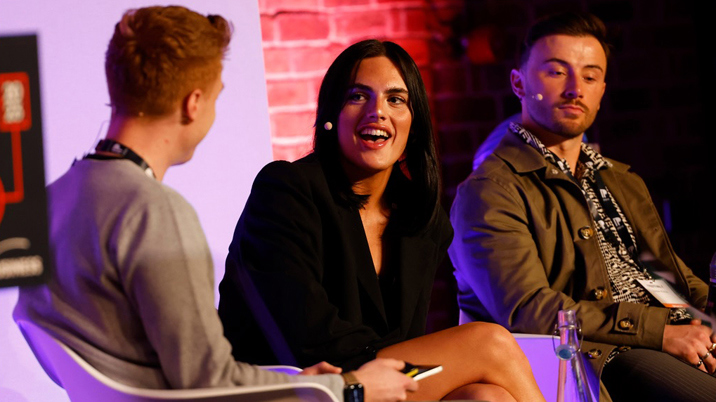
“We’re just normal people,” said footballer Zander Murray at the PPA Festival on Tuesday. Words which shouldn’t need saying, but clearly do.
Murray, one of the very small number of professional sportsmen to have come out as gay, was speaking in a panel session looking at ‘The Power of Positive Representation’, with actress Bel Priestly, who happens to be transgender, and gay rapper Keanan. The session was moderated by Lewis Corner, editorial director at Gay Times.
What the panellists wanted was for the media to challenge stereotypes, to offer a more nuanced perspective and to allow people from marginalised groups to speak for themselves.
Speaking specifically about football, Murray spoke of a culture of “toxic masculinity”, of how he’d once received a heart-breaking letter from a fan who had taken it upon himself to reveal to fellow fans on the journey to an away fixture that he was gay, only to be turfed off the bus. The sport had come a long way on racism but had barely got out of the starting blocks on homophobia.
Murray complained not so much about a lack of media attention, but the type of attention. He was forever being asked by mainstream media for his opinion on issues where football and sexuality intersected – for instance, the Qatar World Cup, but instead of reactive and negative commentary, why not, he felt, make space for a proactive positive piece?
Labelling in the media was another bone of contention. Keanan had no problem being described as a “gay rapper” if the purpose of the label was to raise awareness. Where he had an issue with it was where it was intended to demean and diminish. Context is all.
The session ended with a wish list. “Stop the negative stories,” said Bel Priestly. “Regulate Twitter” where the algorithms channel so much hatred, urged Zander Murray. For Keanan, perceptions would change quickest through musical collaborations with straight rappers: “It would take just one three minute song to change the conversation.”
Ultimately, as Lewis Corner said, all anyone ever wants is to be shown “respect as human beings”.
Now, that shouldn’t be too much to ask.
You can catch James Evelegh’s regular column in the InPubWeekly newsletter, which you can register to receive here.












